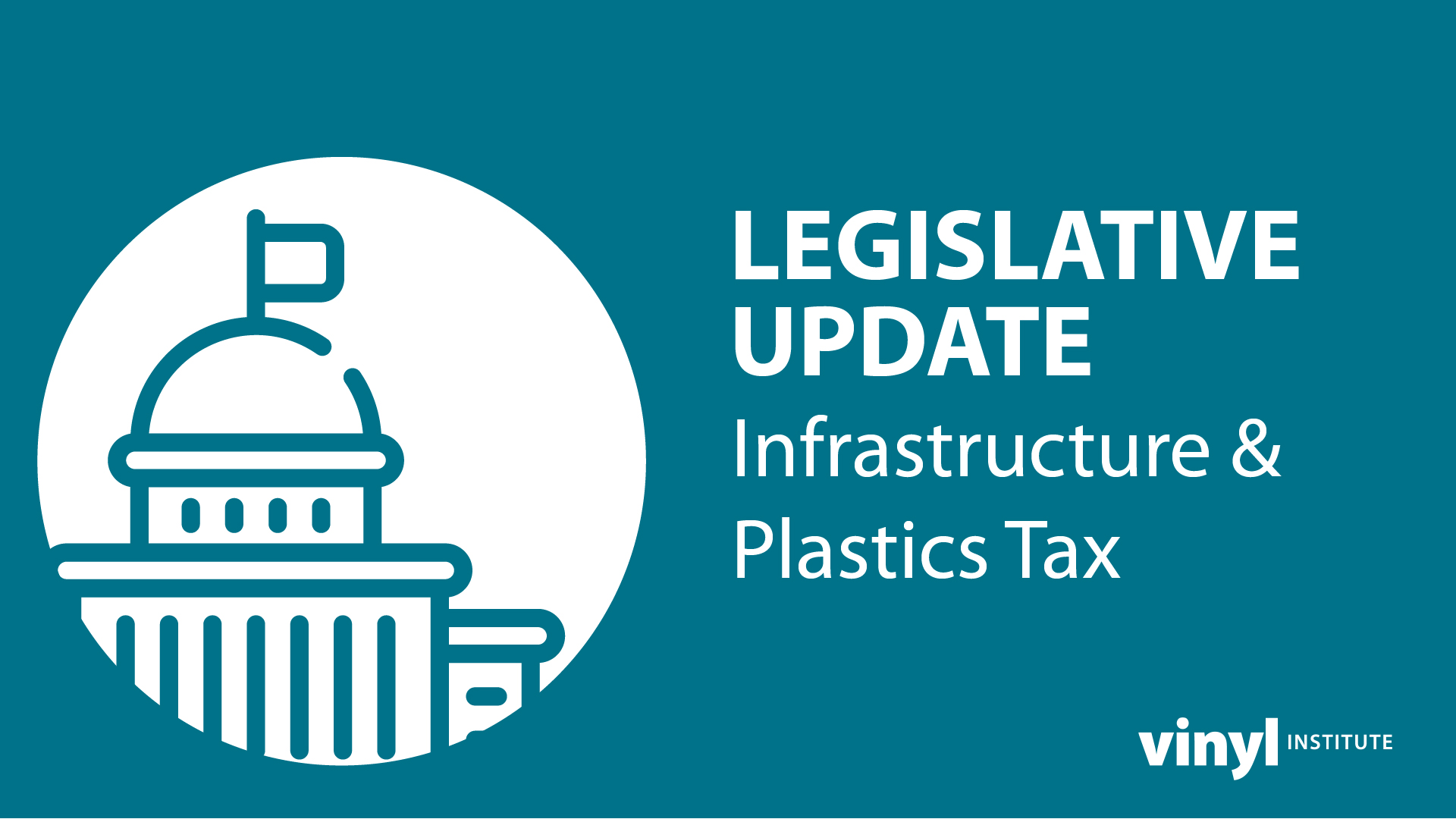This website uses cookies so that we can provide you with the best user experience possible. Cookie information is stored in your browser and performs functions such as recognising you when you return to our website and helping our team to understand which sections of the website you find most interesting and useful.
News
Legislative Update: Infrastructure & Virgin Plastic Tax
Infrastructure
On Aug. 10, the Senate voted, 69-30, to pass the bipartisan infrastructure package, titled the Infrastructure Investment and Jobs Act (IIJA), which would provide $550 billion in new spending on roads, bridges, broadband, water infrastructure, and energy infrastructure. As previously reported, the legislation (H.R. 3684) includes significant investments in water infrastructure and key recycling-related provisions, including the text of the industry-supported RECYCLE Act, funding for battery recycling programs and research, and Save Our Seas 2.0 grant funding. The legislation now heads to the House of Representatives as House Speaker Nancy Pelosi (D-CA) strategizes on how to best proceed with the legislation given the competing priorities of different factions within her caucus.
Budget Resolution
After an all-night vote-a-rama, on Aug. 11, the Senate adopted, 50-49 on a party line vote, a $3.5 trillion FY22 budget resolution that instructs congressional committees on how to draft legislation to spend its allocated funding. The House plans to return from August recess on the 23rd to vote on the resolution and kick off the reconciliation process toward final passage. The package invests in Democratic “human infrastructure” priorities, including climate change and social safety nets, while working toward President Biden’s goal to cut carbon emissions by 50% by 2030. The bill is also expected to focus on bolstering domestic supply chains and clean energy, invest heavily in climate research and resilient infrastructure, and environmental justice programs for climate equity and clean water. Many of these priorities will likely be subject to the Senate’s “Byrd rule” which disallows non-budget related items from the reconciliation process.
Democratic leadership continues try to mollify competing interests in the caucus. Moderate Democrats, many of whom are from swing districts, are demanding that the House first pass the $1.2 trillion infrastructure bill while the caucus’ progressives demand that the infrastructure and budget reconciliation bills be passed together. Democratic Whip James Clyburn (D-SC) told members on Tuesday that he would hope that no Democrats “would do or say anything that would jeopardize passing these bills,” which he says are critical for the party to maintain the majority. Speaker Pelosi is to satisfy the moderates’ calls by offering a novel procedural motion encompassing both bills. Pelosi met with top White House officials on July 17 about ensuring passage of major infrastructure spending, which is the president’s top legislative priority.
Virgin Plastic Tax
Sen. Sheldon Whitehouse (D-RI), co-chair of the Senate Oceans Caucus, introduced legislation that would excise a 10-cent per pound fee on virgin plastics that would increase to 20 cents per pound in 2024. This fee would apply to virgin plastic used to make single-use products. Exported virgin plastic resin, medical uses, personal hygiene, and post-consumer recycled resin would be exempt.
The White House says that the Rewarding Efforts to Decrease Unrecycled Contaminants in Ecosystems (REDUCE) Act (S. 2645) would incentivize the market to use recycled plastic and would “ensure that the plastics industry is accountable.” The bill would direct revenue from the virgin plastic fee into a Plastic Waste Reduction Fund designed to be available to carry out plastic waste reduction and recycling activities, including recycling infrastructure improvements, marine debris reduction, detection, monitoring, and cleanup activities; and to address environmental justice and pollution impacts from plastics production. Rep. Raúl Grijalva (D-AZ) introduced a similar but smaller 5-cent-per-pound virgin plastic tax in June.
Sen. Whitehouse has in the past worked with the plastic industry on such bills as the marine plastic and debris legislation and the Save Our Seas Acts. The American Chemistry Council (ACC), Vinyl Institute (VI), and plastics makers are calling on Congress to adopt instead a five-point plan for federal action they unveiled in July. That plan includes a federally mandated 30% recycled content standard for plastic packaging and a producer responsibility system to fund better collection of all materials, including plastic, for recycling.
The VI welcomes the opportunity to continue working with Sen. Whitehouse and other members of Congress to address the plastics and waste management problem the U.S. and other countries face.


